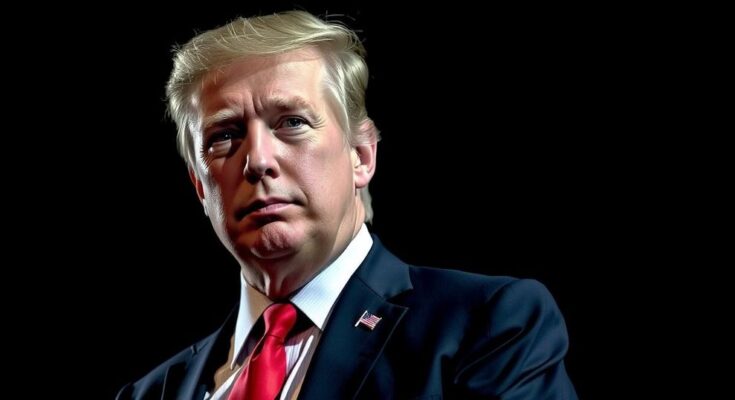Elon Musk is leveraging financial incentives in an effort to support Donald Trump’s campaign for the presidency. Through his political action committee, America Pac, Musk is offering substantial monetary rewards to individuals who endorse his petition for specific policies. This strategy has drawn scrutiny for possibly violating election laws and highlighting the pervasive influence of wealthy donors in American politics. Should Trump be re-elected, Musk’s influence could significantly affect governmental policies and priorities, raising concerns about the integrity of democracy.
In the lead-up to the November elections, Elon Musk has initiated controversial strategies to support his ally, Donald Trump, in regaining the presidency. Musk’s political action committee, America Pac, has launched a campaign promising to distribute $1 million daily to individuals who sign a petition endorsing free speech and gun rights. This initiative follows Musk’s earlier offer to pay registered voters in swing states amounts ranging from $47 to $100 for their signatures. Critics have raised alarms regarding the legality of this practice, with experts such as Rick Hasen describing it as a potential violation of laws against vote-buying. Additionally, Musk’s Future Coalition Pac has employed divisive messaging, targeting key voting demographics with contradictory advertisements concerning Vice President Kamala Harris’s stance on Middle Eastern policies. The amount of money influencing American politics has surged since the 2010 Citizens United ruling, facilitating unprecedented corporate contributions to political campaigns, with substantial amounts directed toward Trump’s campaign from wealthy donors. Musk’s backing for Trump is part of a broader trend of wealthy individuals wielding their financial power in politics, with Musk reportedly having invested at least $75 million toward this cause. His potential influence could manifest in expected policy changes or government efficiency initiatives aimed at favoring his business interests. Such expected policies may range from cutting government spending on public services to reallocating funds to benefit his ventures, introducing a self-serving dynamic into governance should Trump secure another term. Overall, as Musk intertwines his financial pursuits with political ambitions, implications for policy and governance become increasingly complex and troubling for ordinary citizens.
The article discusses Elon Musk’s recent endeavors to support Donald Trump ahead of the U.S. elections, emphasizing his engagement in questionable political strategies, monetary incentives for voter support, and divisive advertising tactics. Contextualized within a broader critique of campaign financing in American politics, the piece examines how corporate interests, facilitated by historic judicial rulings, increasingly dominate electoral processes. The potential implications of Musk’s influence on governance and policy direction are also explored, raising concerns about corruption and self-interest among powerful political donors.
In summary, Elon Musk’s efforts to influence the upcoming U.S. election for Donald Trump through financial incentives and targeted political messaging highlight the extensive power that wealthy individuals wield in American politics. The legality and ethics of his tactics raise significant concerns about the integrity of electoral processes. As political contributions from billionaires escalate, the potential shift in governance to favor special interests threatens democratic principles and equitable policymaking. Should Trump win another term, the implications of Musk’s involvement could reshape government priorities and further entrench the influence of affluent donors in U.S. politics.
Original Source: www.theguardian.com




